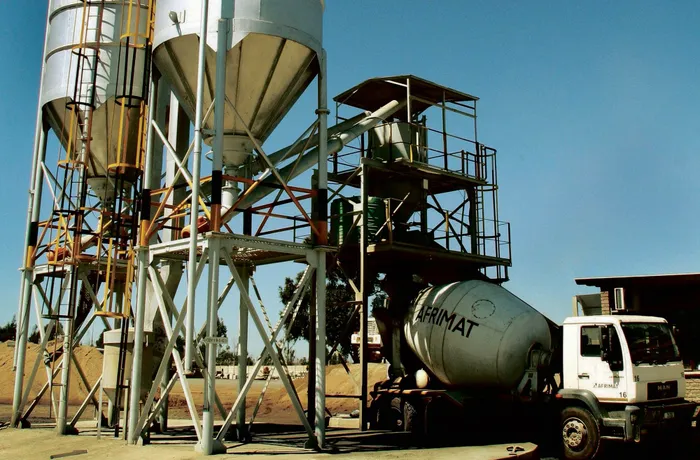Afrimat eyes steady recovery in quarter two amid operational gains, cement challenges

Afrimat reported signs of a recovery in the second quarter.
Image: Supplied
South African industrial minerals and construction materials group Afrimat reported signs of a recovery in the second quarter of its 2026 financial year, following a difficult 2025 and muted performance in the opening months of financial year 2026.
The group cited improvements at its Nkomati anthracite operation, a marked increase in local iron ore sales, and significant progress in its aggregates business as key drivers of the recent upturn. Afrimat also noted successful integration of acquired assets, particularly the Lafarge South Africa business, and monthly cost savings following the migration of Holcim’s systems onto the Afrimat platform.
It said the focus for the past eight months has been to ensure that Afrimat remains strategically positioned.
"Our diversified model ensures the correct deployment of resources across operations," Afrimat said. "After each acquisition, we allowed time to stabilise distressed assets...we are now beginning to see a steady turnaround."
Aggregates
Afrimat said its strategic objective in acquiring Lafarge was to get access to the quarries. However, the quarries had been neglected and required a significant investment of both time and capital to bring them back to production.
Through data collection and processing, it enhanced the operational efficiency of the quarries in quarter two, resulting in improved profitability. It has also regained market share previously lost, by providing better service and ensuring product availability for its customers.
Afrimat said its diversified operations, its acquisition of Lafarge South Africa, and the fact that 50% of the Transnet-approved quarries are owned by Afrimat, ensure that Afrimat is well-positioned to support Transnet's infrastructure development and maintenance across all six major rail corridors.
Cement
Afrimat said demand for its cement products remains strong, with stable and rising bulk and bagged cement sales. July 2025 marked the highest monthly sales since taking over the business.
Significant capital investments have been made at the Lichtenburg cement factory to address historical underinvestment. However, kiln reliability remains a constraint. The company has deployed five dedicated engineers to address these bottlenecks.
Afrimat said it continues to evolve its cement strategy, aligning with global sustainability trends and operational efficiency.
"By reducing reliance on costly and environmentally taxing components and incorporating extenders such as fly ash and slag, both abundantly available to Afrimat, we can supply compliant, cost-effective, and lower-carbon cement products to the market," it said.
Iron ore
Afrimat reported domestic iron ore sales of 339 648 tonnes as of August 31, 2024, with volumes expected to stabilise for the rest of the year. Most of this supply is directed to ArcelorMittal South Africa (Amsa) at Vanderbijlpark. The company said it would remain largely unaffected if Amsa’s Newcastle operations shut down
Internationally, export volumes are expected to increase compared to the previous comparable period, but the expectation is that the full year volumes will be similar to the previous year, roughly 16% below Afrimat's yearly allocation of 870 000 tpa. Afrimat said Transnet has stopped the decline in logistics availability on the Saldanha export line.
Anthracite
It said operational improvements at Nkomati have proven successful. The full Environmental Impact Assessment is now in place. However, due to decreased demand from ferrochrome smelters, volumes are expected to decrease between 10% and 15% during the period (August 31, 2024 volumes: 155 686 tonnes).
Looking ahead, Afrimat said its focus remains on eliminating operating losses in the cement operation
Afrimat anticipates domestic iron ore sales to be slightly lower across the second half of the financial year, if Newcastle closes. International iron ore sales are expected to remain similar to the previous year.
Within anthracite, the focus remains on increasing exports and keeping local take-off as consistent as possible.
The group also warned that, "It is not tariffs from America that will count against us, but rather the lack of protection, infrastructure investment, and maintenance that is putting immense pressure on our customers. "
In response, Afrimat said it would continue to support its customers while also exploring alternative markets.
BUSINESS REPORT